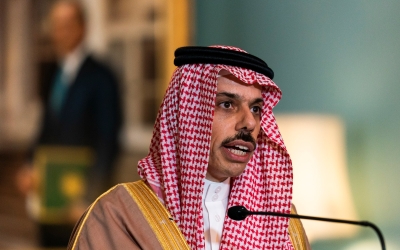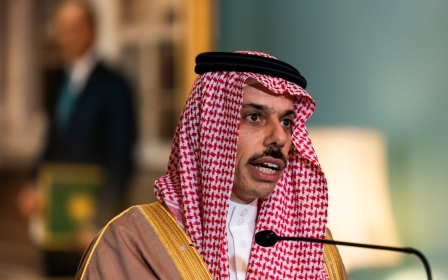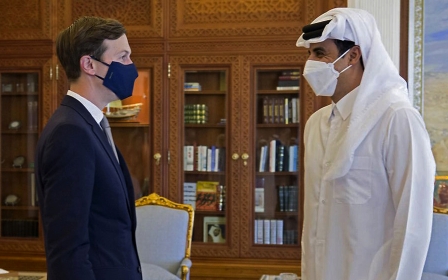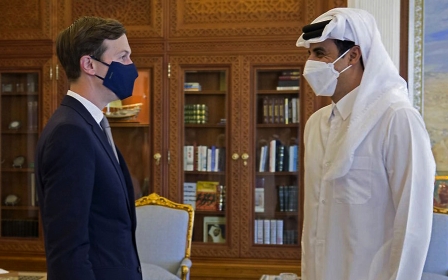Egypt, UAE welcome Kuwaiti efforts to settle Gulf diplomatic crisis with Qatar
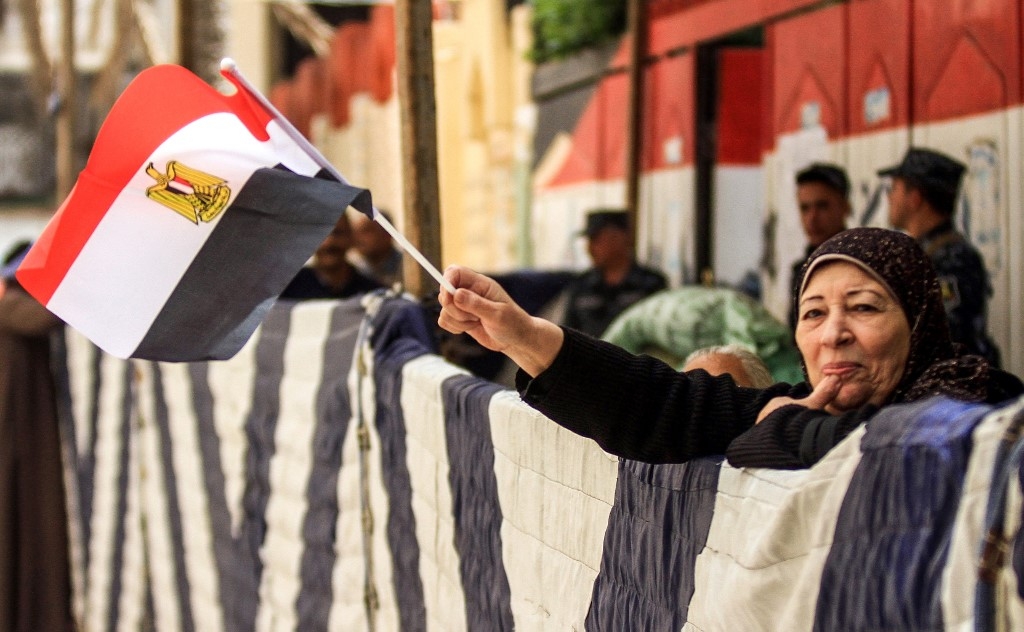
Egyptian and Emirati officials have welcomed Kuwaiti efforts to settle the diplomatic crisis between Saudi Arabia, Egypt, the United Arab Emirates and Bahrain on one side, and Qatar on the other, which began in June 2017.
It is the first time Egyptian and Emirati officials have commented on ongoing talks to end the countries' blockade against Qatar since reports about a potential reconciliation emerged last week.
“We appreciate the Kuwaiti effort to bridge the Arab gap and settle the crisis with Qatar,” Ahmed Hafez, the Egyptian foreign ministry spokesperson, said on Tuesday.
“We hope that these thankful efforts reveal a complete solution that will deal with all the reasons of this crisis and guarantee a precise and serious commitment on what will be agreed on,” he said, adding that Cairo would always put the priority of preserving “Arab solidarity, stability and security" first.
Meanwhile, Anwar Gargash, UAE's minister of state for foreign affairs, tweeted later on Tuesday saying that his country appreciates the Kuwaiti and US efforts to increase solidarity in the Gulf, and that the relation between the Gulf Cooperation Council (GCC) and Egypt is "a cornerstone" to maintain Arab security and the stability of the region.
Egyptian-Qatari relations have worsened since President Abdel Fattah el-Sisi came to power in 2014.
Doha had supported Sisi’s predecessor, Mohamed Morsi, who was ousted in 2013 in a military coup led by Sisi.
On Saturday, Saudi Foreign Minister Faisal bin Farhan Al Saud said that a resolution of the diplomatic crisis was in sight, with all the nations involved "on board" and a final agreement expected soon.
Airspace closed
Saudi Arabia led its allies the UAE, Bahrain and Egypt to cut ties with Qatar in June 2017, saying it was too close to Iran and funding radical movements, charges Doha staunchly denies.
The four nations subsequently expelled Qataris residing in their countries, closed their airspace to Qatari aircraft and sealed their borders and ports, in some cases separating mixed-nationality families.
The boycott has forced Qatar Airways aircraft to fly over Iran, Riyadh's arch-rival and long-time adversary of the United States, with Doha having to pay significant overflight fees to Tehran in the process.
Qatar has also made comments in recent weeks indicating a greater willingness to resolve the dispute.
Middle East Eye delivers independent and unrivalled coverage and analysis of the Middle East, North Africa and beyond. To learn more about republishing this content and the associated fees, please fill out this form. More about MEE can be found here.


